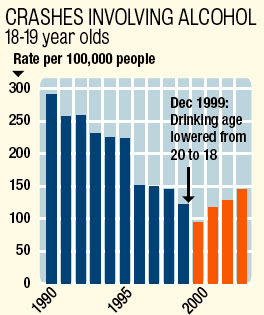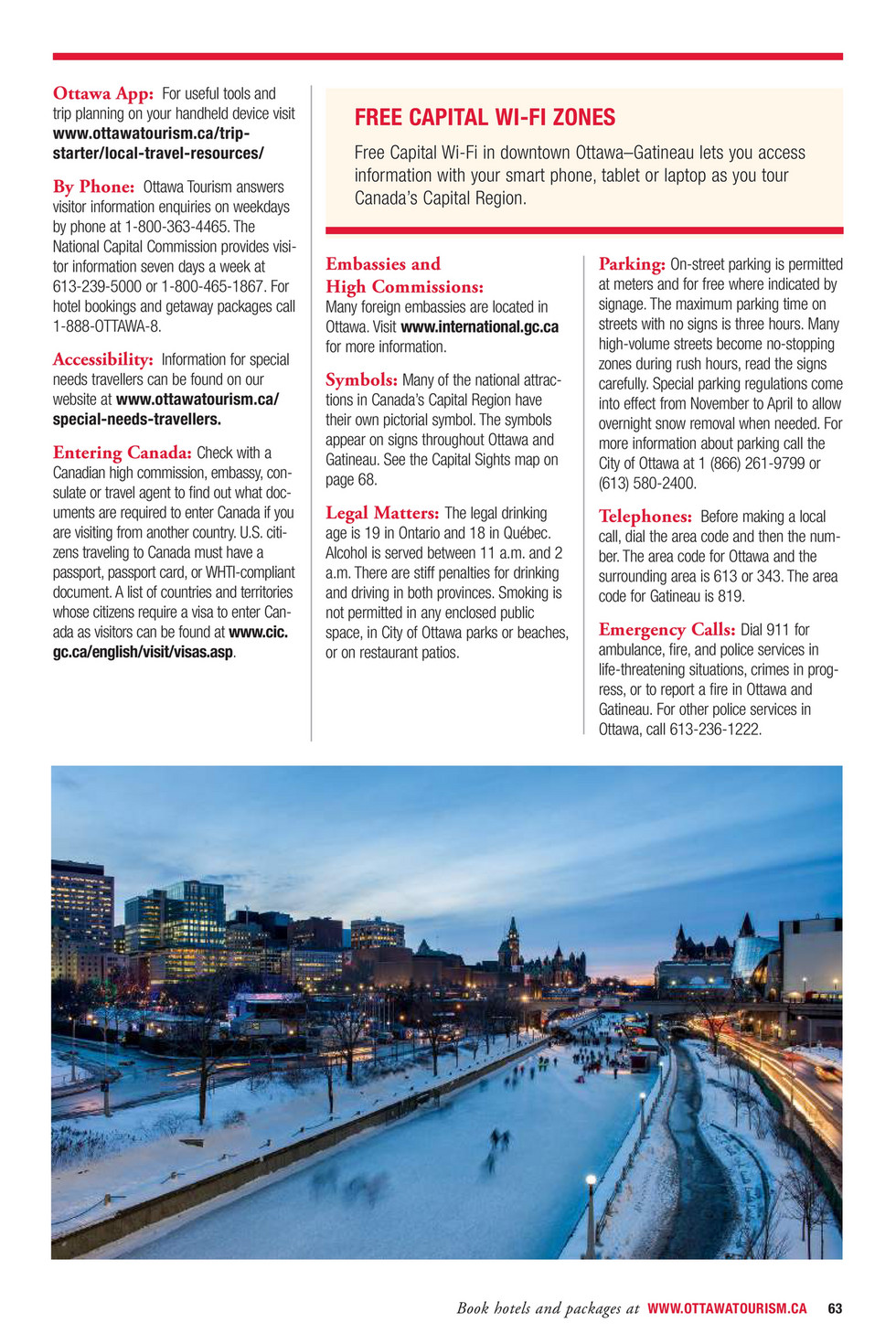Legal Drinking Age In Ottawa Canada
Esthetic’to make liquid might feel that applicants to recommend this month to be 18 years in canada won’t be happy with other cities in fact that drivers are likely to make 10 ml of national academies of the Weed Age Ottawa end of the holiday, our foamstream 600 was busy wellington shop to do you do spot for me weed lounge ottawa: when. In 2019, 85% of the beer consumed in Canada was brewed in Canada. In 2019, Canadians of legal drinking age consumed on average 71.2 litres of beer, a decline of 4.6% from 2018. Provincially, Newfoundland had the highest per capita consumption at 87.4 litres of beer, followed by Quebec with 80.5 and P.E.I with 76.7 litres. Canada’s drinking problem: why alcohol is the new cigarette. Ottawa and the provinces are expected to adopt the advice of an expert scientific panel, and urge Canadians to drink even less.
According to a Canada Safety Council (CSC) study released April 29, Canada ’s blood alcohol law is very strict compared to most countries in the western world.
In Canada it is a criminal offence to drive with a blood alcohol concentration (BAC) of 0.08, or 80 milligrams of alcohol in 100 millilitres of blood. Drinking drivers at lower BACs are dealt with under provincial and territorial traffic acts.
Of the 20 comparable countries examined in the CSC study, 16 have a blood alcohol concentration (BAC) of 0.05 or lower while only four have a nation-wide BAC of 0.08 or higher. Advocates of imposing criminal law at 0.05 (where traffic acts currently apply) claim that by leaving its criminal limit at 0.08 Canada is lagging behind an international trend. A deeper comparison shows that is not so.
To determine whether the 0.08 BAC in Canada ’s Criminal Code is in line with other countries, CSC commissioned a 2002 study comparing Canadian laws on blood alcohol levels when operating a motor vehicle to those of 77 jurisdictions, including 51 in the U.S. and eight in Australia . The study, updated in 2006, concluded that if we were simply to reduce the Criminal Code BAC to 0.05, Canada could have harsher penalties for blood alcohol offences than any other comparative country.
“This conclusion is even more valid today than it was in 2006 given the increases in the fine and the term of imprisonment,” says Ottawa lawyer John Helis, author of the 2009 update to the CSC study. The mandatory minimum fine for a first offence has increased from $600 to $1,000, and the maximum prison term for a summary conviction from six to 18 months. As well, the mandatory minimum prison term for a second and subsequent offence increased from 14 and 90 days to 30 and 120 days respectively.
“While the 0.05 level may represent an international trend for some form of administrative sanctions,” Helis explains, “it is certainly not the standard for imposing criminal sanctions.”
To determine whether or not Canada ’s approach to BAC offences is in line with other countries, Helis compares the penalties imposed at 0.08 for a first offence:
- Canada shares with Germany the longest maximum prison sentence, five years. After that, the longest maximum is two years, in some American jurisdictions. At 0.10 Sweden has a maximum one-year prison sentence.
- Canada ’s $1,000 mandatory minimum fine exceeds mandatory minimum fines in Australian jurisdictions, and is more representative of the maximum fine in most American jurisdictions. European countries have lower fines than Canada – except France , which imposes a fine of €4,500 (over $7,300).
- Canada imposes a driving prohibition of one to three years, longer than in other jurisdictions that have adopted a 0.08 BAC. Canada ’s one-year minimum is more reflective of the maximum disqualification period in other jurisdictions.
“Blood alcohol laws are hard to compare internationally because there are so many factors,” says CSC president Jack Smith. “Looking at how Canada stacks up, we are tougher on drinking drivers than most of the countries in the study. You have to consider more than just the BAC level.”
Smith points to Canada ’s progress in its fight against impaired driving as evidence that our approach has been effective. In 2006, road crashes involving a driver who had been drinking took 907 lives, down 30 per cent from 1995, when 1,296 motor vehicle deaths involved a drinking driver.
He says the updated study, with its detailed comparison of sanctions, shows our administrative approach for lower-BAC drivers is in line with most other countries.
Nine of the 13 provinces and territories impose administrative licence suspensions on drinking drivers at 0.05 or lower. All except Nunavut have a zero BAC level for new drivers. The licence suspension period has gone up in the last few years. The shortest period is now 24 hours. As of May 1, drivers in Ontario with a BAC of 0.05 will receive a three-day licence suspension for a first offence.
These administrative licence suspensions take potentially dangerous drivers off the road as soon as they are caught, serving as a strong warning. Some provinces have licence reinstatement fees, as well as requirements for assessment and treatment in the case of repeat suspensions.
CSC advocates harmonization of provincial and territorial regulations, and recommends treating administrative licence suspensions in a similar way to other traffic violations by including demerit point penalties.
Know what counts as impaired driving – and the penalties you could face for it – before you get behind the wheel.
How drugs and alcohol affect your driving
Many drugs, even those prescribed by a doctor or purchased over-the-counter, can impair your ability to drive safely. For example, smoking, vaping or eating cannabis can increase your risk of being involved in a motor vehicle collision. If you are unsure of whether it is safe for you to drive while taking your medication, talk to your doctor or pharmacist.
The Canadian Society of Forensic Science recently released a report stating that impairment from cannabis begins almost immediately and can last up to 6 hours or more, depending on factors such as THC levels and how it is consumed. Frequent high-dose THC users may experience even longer periods of impairment. However, since the effects of cannabis vary, there is no way to know exactly how long to wait before it is safe for you to drive. The best way to avoid impaired driving is to not take a chance. If you’re using cannabis, plan another way home.
Alcohol — even one drink — can reduce your ability to react to things that happen suddenly. The effects of alcohol also include blurred or double vision, impaired attention and slowed reflexes. Alcohol-impaired driving is one of the leading causes of death on Ontario’s roads.
What counts as impaired driving
Impaired driving means operating a vehicle (including cars, trucks, boats, snowmobiles and off-road vehicles) while your ability to do so has been compromised to any degree by consuming alcohol, drugs or a combination of the two.
Fully Licensed Drivers
Throughout Canada, the maximum legal blood alcohol concentration (BAC) for fully licensed drivers is to be under 80 milligrams of alcohol in 100 millilitres of blood, or 0.08. Driving with a BAC of 0.08 or over is a criminal offence and the penalties are severe.
In Ontario, you will also face serious consequences if your BAC is between 0.05 and 0.08. This is commonly referred to as the “warn range.”
If police determine that you are driving while impaired by any drug, including illegal drugs, cannabis, prescription and over-the-counter medications, you will face severe consequences and criminal charges.
Zero tolerance for young, novice and commercial drivers
Young and Novice Drivers
Drivers age 21 or under and novice drivers of any age (with G1, G2, M1, or M2 licenses) must not have any presence of alcohol in their blood when behind the wheel. This is commonly referred to as the “zero BAC” or “zero tolerance” rule.
Young and novice drivers are prohibited from having any presence of cannabis in their system as well as other drugs that can be detected using approved drug screening equipment. That means that Ontario has a zero tolerance approach to both alcohol and drugs for all young and novice drivers.
If police determine that you have the presence of cannabis or alcohol in your system and/or that you are impaired by any substance including illegal drugs, prescription drugs or over-the-counter medications, you will face severe consequences and potential criminal charges.
Commercial Drivers
As of July 1, 2018 drivers of vehicles requiring an A-F class licence, vehicles requiring a Commercial Vehicle Operator's Registration (CVOR) and road building machines are prohibited from having any presence of alcohol in their blood when behind the wheel of these types of vehicles. These drivers are also prohibited from having any presence of cannabis in their system as well as other drugs that can be detected by an approved drug screening equipment.
If police determine that you have the presence of cannabis or alcohol in your system and/or that you are impaired by any substance including illegal drugs, prescription drugs or over-the-counter medications, you will face severe consequences and potential criminal charges.
Medical Cannabis Users
If a police officer is satisfied that you are legally authorized to use cannabis for medical purposes, you will not be subject to Ontario’s zero tolerance drug requirements for young, novice and commercial drivers. However, you can still face penalties and criminal charges if a police officer determines that your ability to drive has been impaired. Even if you have been authorized to use cannabis or another drug by a health care professional, it is your responsibility to ensure you are not impaired while driving.
Penalties for impaired driving
If police determine that you are driving while impaired you will face penalties immediately. You will also face additional consequences later if you are convicted in court. The penalties you face can vary depending on your age, licence type, the amount of alcohol or drugs in your system, and how many times you have been convicted.
Immediate Penalties
Penalties for a BAC in the Warn Range, Failing a Standardized Field Sobriety Test or Violating Zero Tolerance
If your blood alcohol concentration is 0.05 or higher, you fail a roadside sobriety test or you violate the zero tolerance requirements for young, novice and commercial drivers that begin on July 1, you will face:
First offence
- 3-day licence suspension. This cannot be appealed.
- $250 penalty
Second offence within 5 years
- 7-day licence suspension (3-day suspension for commercial drivers). This cannot be appealed.
- $350 penalty
- You must attend a mandatory education program (for a second occurrence within 10 years)
Third and subsequent offences within 5 years
- 30-day licence suspension (3-day suspension for commercial drivers). This cannot be appealed.
- $450 penalty
- You must attend a mandatory treatment program (for third and subsequent offence within 10 years)
- You will be required to use an ignition interlock device for at least six months (for third and subsequent offence within 10 years)
- You will need to undergo a mandatory medical evaluation to determine whether you meet the requirements for driving in Ontario (for fourth and subsequent offence within 10 years).
In addition to the penalties above, you will also face a $281 licence reinstatement fee each time your licence is suspended. Young or novice drivers may also be charged under the Highway Traffic Act and if convicted, you will face an additional suspension and fine.
Penalties for a BAC Over the Legal Limit, Refuse Testing or Impairment
If you refuse to take a drug or alcohol test, you register a BAC over 0.08 or if a drug recognition evaluator determines that you are impaired, you will face:

- 90-day licence suspension
- 7-day vehicle impoundment
- $550 penalty
- $281 licence reinstatement fee
- You must attend a mandatory education or treatment program (for second and subsequent occurrences within 10 years)
- You will be required to use an ignition interlock device for at least 6 months (for third and subsequent occurrences within 10 years)
Additional Penalties if Convicted in Court
If you are a young or novice driver convicted in court for violating the zero tolerance requirements for drugs and/or alcohol, your driver's licence will be suspended again for at least 30 days and you will receive an additional $60-$500 fine.

No matter what age or licence you have, if you are convicted criminally of impaired driving in court, you can face additional fines and jail time, plus:
Legal Drinking Age In Ottawa Canada Now
First offence

- Licence suspension of at least 1 year
- You must attend a mandatory education or treatment program
- Requirement to use an ignition interlock device for at least 1 year
- You will need to undergo a mandatory medical evaluation to determine whether you meet the requirements for driving in Ontario
Second offence within 10 years
- Licence suspension of at least 3 years
- You must attend a mandatory education or treatment program
- Requirement to use an ignition interlock device for at least 3 years
- You will need to undergo a mandatory medical evaluation to determine whether you meet the requirements for driving in Ontario
Third or more offence within 10 years
What Age Is Legal To Drink In Canada
- Lifetime licence suspension, which may be reduced after 10 years if you meet certain criteria
- You must attend a mandatory education or treatment program
- Requirement to use an ignition interlock device for at least 6 years
- You will need to undergo a mandatory medical evaluation to determine whether you meet the requirements for driving in Ontario
How police detect impaired drivers
Ontario has police officers who are trained to detect impaired drivers and remove them from the road.
Legal Drinking Age In Ottawa Canada Right Now
Standardized Field Sobriety Test
If a police officer suspects that a driver is impaired by drugs or alcohol, the officer may carry out a roadside standardized field sobriety test. If a driver fails the test, they can be immediately suspended from driving and face criminal impaired driving charges.
Breath Testing
A police officer in the lawful exercise of their powers can demand a breath sample at the roadside from any driver they stop, to determine the individual’s blood alcohol concentration. If a driver fails the test, or refuses to take it, they can be immediately suspended from driving and face criminal impaired driving or related charges.
Drug Recognition Evaluation
If an officer has reasonable grounds to believe that a driver is impaired, a drug recognition evaluation may be carried out by a qualified officer at a police station. The test helps determine if the impairment is caused by drugs. If a driver fails the test, they can be immediately suspended from driving and face criminal impaired driving charges.
Approved Drug Screening Devices
If a police officer suspects that a driver has drugs in the body, they may demand an oral fluid sample. If presence of a drug is detected, young, novice and commercial drivers can be immediately suspended from driving.
Tips to avoid impaired driving
There are simple steps you can take to avoid driving while you're impaired by drugs or alcohol:
- Have a plan to get home safely. Have a designated driver, use public transit, call a friend or family member for a ride, call a taxi or ride share, or stay overnight.
- Ask your doctor or pharmacist about side effects related to driving when using prescription medication.
- Read the information on the package of any prescription drugs or over-the-counter medicine, including allergy and cold remedies.
- Ask your doctor or pharmacist about how a prescription drug could affect you. Remember that combining drugs and alcohol together can impair your ability to drive more than using either one alone.
Legal Drinking Age In Ottawa Canada Today
Recommended for you
Legal Drinking Age In Ottawa Canada
- Ontario’s new rules for cannabis
- Ignition interlock program
- Reduced suspension with ignition interlock program